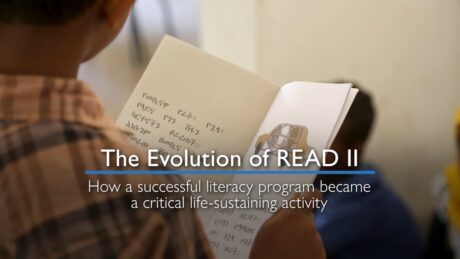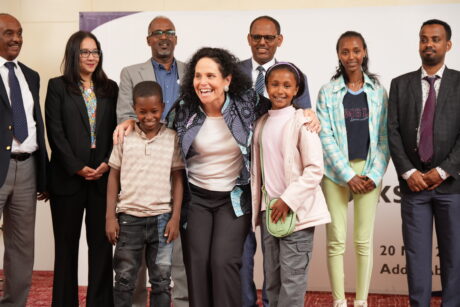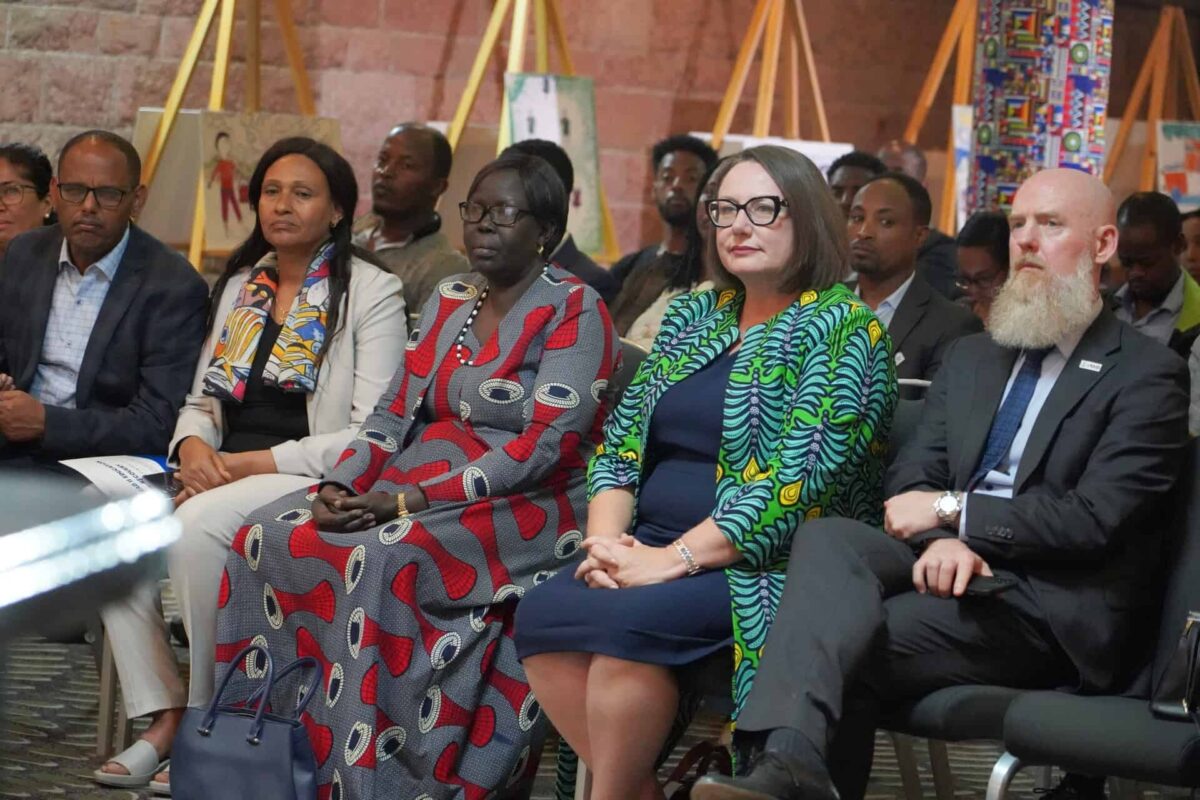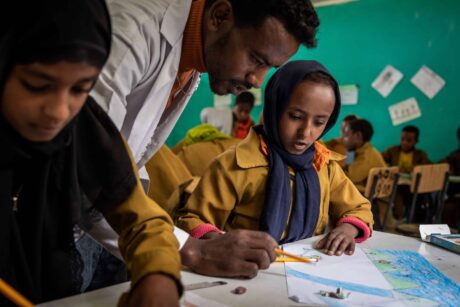Jara, EthiopiaHaftu Beze, a mathematics teacher in the Raya Bala District, thought he may never instruct students again. Living in the one of the disputed areas between the Amhara and Tigray regions, the young teacher fled his home and classroom when fierce fighting erupted between the government forces and the Tigray People’s Liberation Front, also known as the TPLF.
Today, Haftu is one of the 25,000 internally displaced persons living in a camp in the North Wollo District of the Amhara region. He is among the millions displaced by the conflict in Afar, Tigray and Amhara regions.
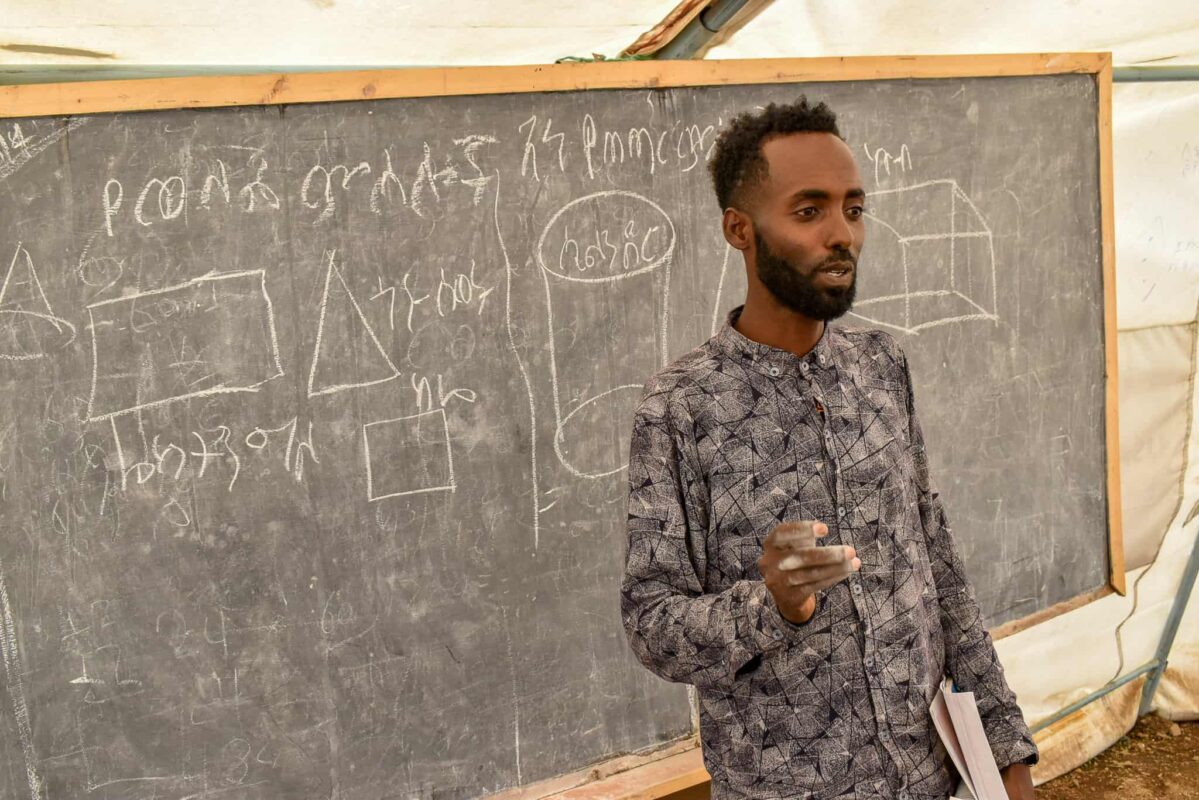
“After we were displaced and settled in the IDP camp, my fellow teacher colleagues and I were thinking about how we could provide support to students affected by this conflict,” Haftu recalls.
The U.S. Agency for International Development-funded READ II Program, which is implemented by Creative Associates International with its core partner World Vision, established temporary learning centers for primary school students at Jara IDP camp.
When the program sought qualified and experienced instructors, Haftu and many other displaced teachers eagerly volunteered.
“When READ II came up with the idea of establishing a temporary learning center for IDP students, we didn’t think twice though we know we will not be paid,” he says.
READ II established the temporary learning centers in tents and outfitted them with basic material, such as desks, blackboards and chalk. The project also provided students with scholastic materials, such as exercise books, pencils and pens, snacks and dignity kits for adolescent girls. The program also donated recreational items, including footballs and volleyballs.
Besides the material support, USAID READ II provided training on psychological first aid, social-emotional learning and psychosocial support for teachers and temporary learning center administrators so that they can support students and communities affected by the conflict.
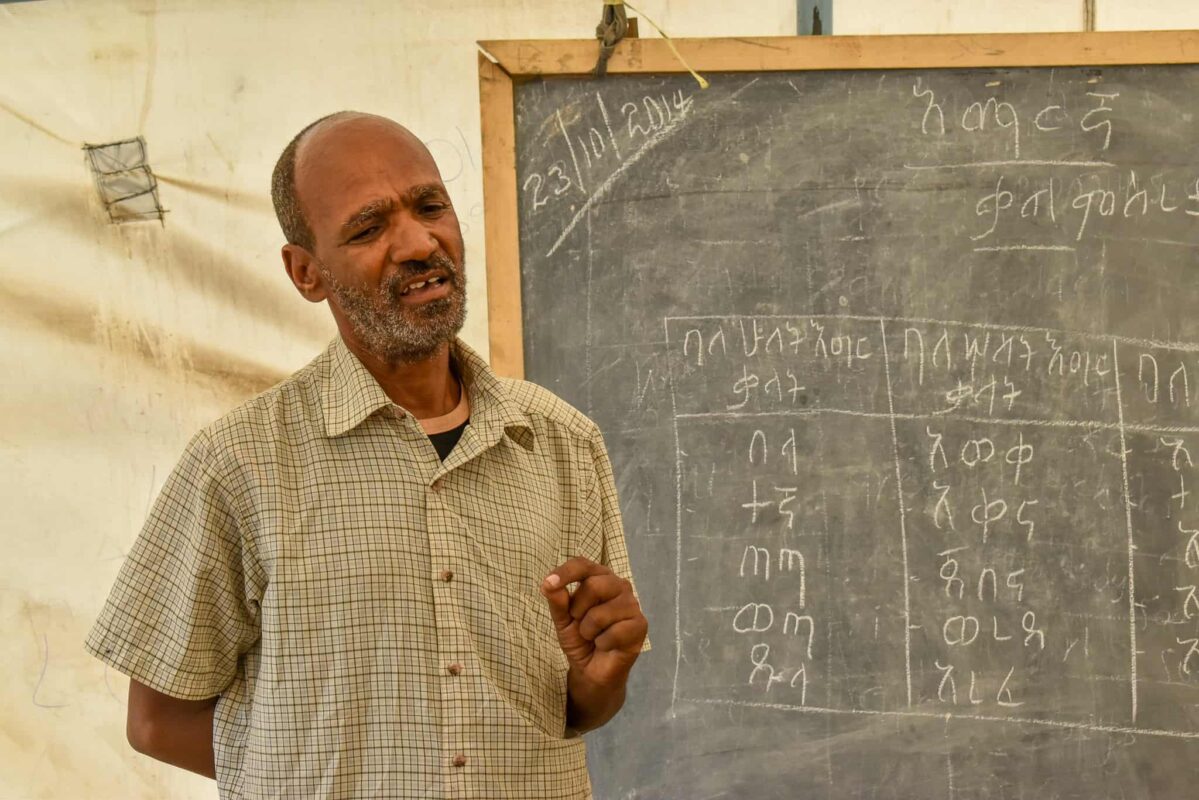
“The training was eye-opening and life-changing,” Haftu says. “It has transformed our roles as teachers not only to teach but also support and encourage students and our community using the new skills we get from the training.”
The training supports teachers and educators to calm themselves, understand the situation students and their communities have been through and provide the necessary support.
“The traumatic experience of the conflict has affected not only students but the whole community including teachers,” Haftu says. “The training has played an important role in getting over those traumatic experiences – first to ourselves and then provide support to students and the communities.”
Despite Haftu’s prior teaching experience, instructing displaced students is much different than his previous classroom work.
“It is very difficult to manage students in an IDP camp,” Haftu says. “But the training we were provided gave us the understanding and skills of how we can support these traumatized children.”
A total of 62 teachers and IDP coordinators in Jara IDP camp have received the training. Overall, USAID READ II has provided similar training to more than 2,496 teachers and 1,246 school administrators cascading the training at school and community levels reaching 338,000 students in 693 schools in conflict-affected Amhara and Afar regions.
Wodajo Admasu, an experienced Amharic teacher displaced from Raya Alamata, also volunteered his services in the Jara IDP camp and went through the special training, which he says changed the way he assumes his responsibilities and his approach to educating and supporting students.
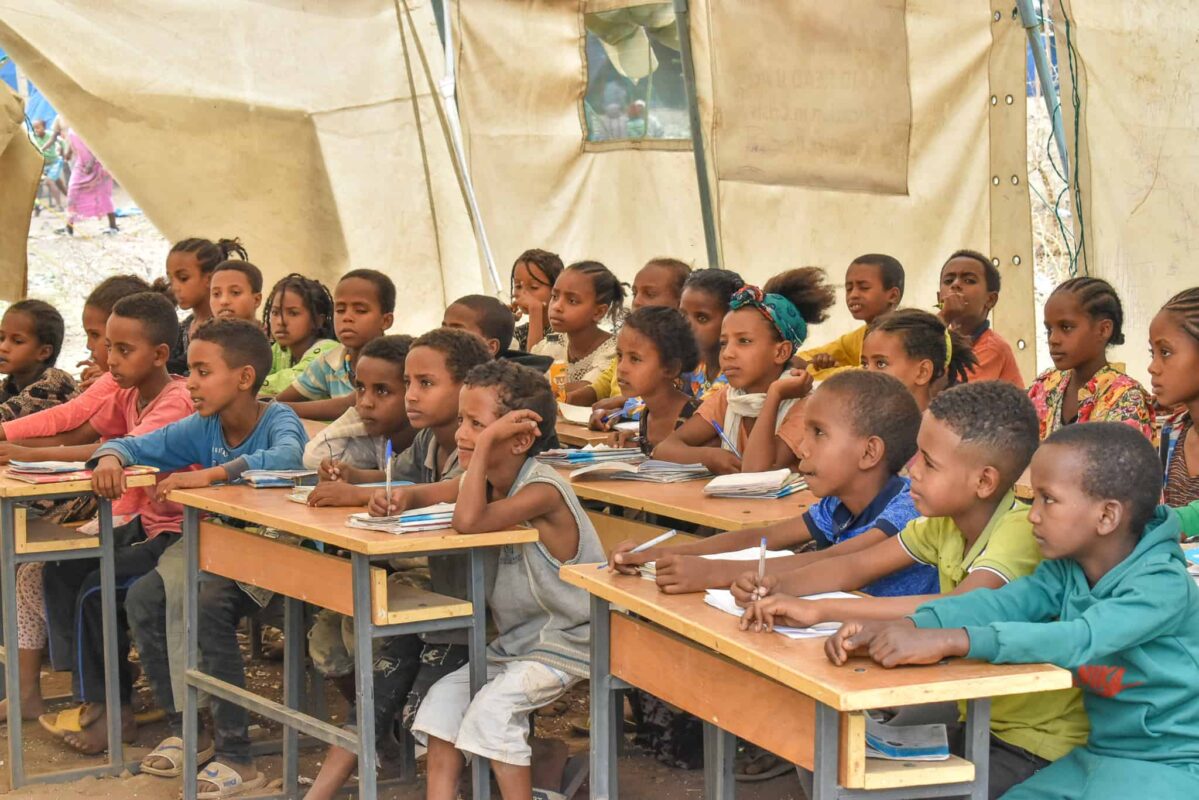
“Based on the training, we now try to prepare lessons that are more participatory, engaging and entertaining to students,” says Wodajo. “Our relationship with our students and their parents is remarkably changed as we not only teach subject matters in the classrooms but try to understand their feelings and problems and help them to solve those problems.
Wodajo says READ II has been supporting the temporary learning center by furnishing them with students’ desks, and chalk as well as providing scholastic and recreational materials for students.
“But the skills we get are life-changing not only in our profession to help students who need psychological and emotional support but for our lives as human beings,” Wodajo says. “They are transformational.”
After the training, Wodajo says, the teacher’s role has remarkably changed in that we support and understand students.
“We are more supportive and appreciative of students than controlling and directing them to do tasks,” He says. “I have observed that there are changes in students too as they are more engaged and actively participate in activities.
